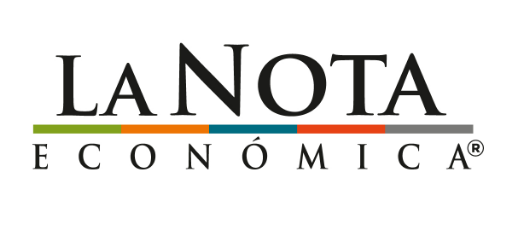- These events will be held between November 15 and 20 at different times each. There will be no cost to participants and they will be virtual. Registration is required only.
The Gabo Foundation and ISA join forces to offer the attendees of the Gabo Festival N°9 tools and resources that allow them to carry out ethical, quality coverage, from a global perspective. Topics addressed will be environmental crisis, cinema and autobiographical documentaries, travel journalism, photojournalism, the economy of care and sound profiles, and podcasts.
These activities will be carried out through master classes between November 15 and 20. They are addressed to journalists, editors, students and teachers of social communication, journalism and related areas, as well as interested professionals from other disciplines.
Each of the master classes of the Gabo Festival N°9 has different schedules. The complete program is available at this link. The virtual events will have no cost for the participants. Only a previous online registration is required.
Learn about the Gabo Festival N°9 master classes and register:
Cartoons that make you uncomfortable, with PxMolina
In this class on graphic journalism and cartoons with the winner of the Gabo 2021 Award for Excellence, PxMolina offers principles and tools to send important messages through satire and cartoons, as well as an analysis of journalism as an antidote to the repression of authoritarian regimes, denouncing contemporary processes of corruption, setbacks to civil liberties and human rights abuses. Register for this master class here.
Pedro X. Molina is a Nicaraguan cartoonist and illustrator, exiled in the United States since 2018. Since 2014, he has been a contributor to Confidencial, one of the most important media outlets in Nicaragua. There, in addition to a daily cartoon, he also contributes a Sunday cartoon and illustrations for different articles. Learn more about him here
How to count women’s participation in the care work system and its socioeconomic implications for the region?
This master class will address the care economy from an intersectional approach to offer reflections and answers to reporters interested in recounting this reality from a human and complex perspective, provoking reflections on the disadvantage between men and women in the responsibility of assuming care work. Register for this master class here.
María Eugenia Ludueña, co-founder and co-director of Agencia Presentes, and Flor Alcaraz, feminist journalist, who are expert journalists in gender-focused coverage, will lead this master class at Gabo Festival N°9.
Cinema: between the personal and the political, the biographical and the historical aspects
In this master class, participants will understand the different ways in which the documentary, through a script developed under the most rigorous journalistic standards, allows multiple audiences to understand complex contexts through a particular narrative. Research tools and methodologies will be shared in order to approach film projects that involve personal history with political events and phenomena. Register for this master class here.
This master class will be given by Moara Passoni, Brazilian writer, producer, screenwriter and director of Êxtase, a non-fiction film that has won numerous awards, including the Jury Prize at the São Paulo International Film Festival and Best Youth Film at FICValdivia. Learn more about her here.
How to narrate the environmental crisis with audiences?
In this master class, you will explore innovative ways for newsrooms to engage with communities about environmental issues in Latin America. The environmental crisis we are experiencing poses numerous challenges to journalistic teams: from how to transcend coverage of the damage to ecosystems, and thus identify and denounce those primarily responsible, to how to connect with the problems in cities and avoid amplifying despair in audiences so that they transform information into action. The class will provide clues to better understand and better account for the biodiversity at stake, the problems generated in the different territories, and strategies to mobilize change. Register for this master class here.
This master class will be led by Jazmín Acuña, journalist, co-founder and editorial director of El Surtidor, an independent media outlet in Paraguay. Acuña won the Gabo Award in Innovation 2018 and Ortega y Gasset Award 2020 for best story regarding the regional special Transnacionales de la Fe. Learn more about her here.
Sound Profiles: Voices that tell the story of key Latin American personalities
In this master class you will learn about the construction of sound profiles. You will recognize how sound profiles have close links with the writing of journalistic profiles, an aspect related to Gabriel García Márquez and associated with narrative journalism in Latin America. During the class, attendees will learn how to research and search for the best language, appropriate to certain characters, with an ethical seal towards a journalism resistant to authoritarianism and that uses its tools for the creation of rigorous and innovative podcasts. Register for this master class here.
Journalist, screenwriter and master in Latin American studies Carol Pires will conduct this master class of the Gabo Festival N°9. Pires hosts the Retrato Narrado podcast, which profiles Brazilian President Jair Bolsonaro. Learn more about her here.
Journalism and travel: to go, to look, and to count
A master class on travel journalism and travel chronicle. We will talk about journalism that travels to look and tell; to go beyond tourism. The class offers the keys from case studies, text analysis and a look at the main trends in the current publishing and transmedia sector: chronicles, travel guides, and maps that bet on a different, disruptive, and journalistic look. Register for this master class here.
This master class of the Gabo Festival N°9 will be conducted by Santiago Tejedor, director of the Department of Journalism and Communication Sciences at the Autonomous University of Barcelona and co-director of the Master in Travel Journalism at the same university. Learn more about him here.
Disinformation in elections: how to deal with it through journalism
This master class will propose ideas for dealing with misinformation. Determined by social networks and digital platforms, the current era is one in which journalism is not the only information channel. Especially in recent years, misinformation has had a great influence on the polarization of recent electoral processes in Latin America. It will also provide elements for analyzing, understanding, and narrating how misinformation campaigns have affected the social debate related to the struggle for gender equality and will show how misinformation is a transnational phenomenon. Register for this master class here.
This Gabo Festival N°9 master class will be given by Luiza Bandeira, Brazilian multimedia journalist, researcher and editor at the Digital Forensics Research Lab (DFRLab). Learn more about her here.
Twelve Lessons for Science Journalists on the COVID-19 Pandemic
This master class will reflect on the main lessons of the Covid-19 pandemic for journalists covering science and health. Historical knowledge about the pandemic, the scientific method, ethics, challenges, and practices in storytelling will be addressed, aiming at learning from this scenario. Register for this master class here. Register for this master class here.
The master class will be led by Deborah Blum, director of the Knight Science Journalism Program at the Massachusetts Institute of Technology (MIT). Learn more about her here.
Understanding without spreading opinion: keys to economic storytelling
In this master class you will explore the tools to analyze and understand the consequences of the COVID-19 pandemic on the economy and, among others, the impact on the inequality gap in Latin America. In addition, it will provide the keys to understanding how the financial system works, the fluctuation of money, the cycles of the economy in the context of the current crisis with the structural reforms in the making and the needs for adaptation of the system. In this context, the class will provide insights to rigorously cover the treatment of economic events for the analysis of the region. It will also generate information without confusing analysis with opinion in times of polarization such as the current one. Register for this master class here.
This master class of the Gabo Festival N°9 will be conducted by Michael Stott, Latin America editor of the British newspaper Financial Times. Michael Stott was also a reporter from Latin America between 1990 and 1998, living in Brazil, Colombia, and Mexico. Learn more about him here.
In recent years, the way in which audiences consume information has been radically transformed. As a result, the media with a long history, such as El País, in addition to adjusting their business models, have readapted in order to offer products designed for readers and thus maintain their function: to provide quality, interesting, and valuable information to the public. This adaptation has not only involved a change in the design of the media, such as the one recently launched by El País, but also in its philosophy.
In this master class, Borja Echevarría (deputy editor of El País since June 2018) will explain, from his personal experience in various media, what the latest evolution of El País involves in order to adapt to the current pandemic and post-pandemic context and to do so from a global perspective in which Latin America plays a key role. The audience will find the lessons learned from these transformations, the reasons and concepts behind it, and how it is projected for the coming years.
In this master class of the Gabo Festival N°9 you will learn about the transformation of the Spanish newspaper El País and the implications of its latest evolution to adapt to the current global context of pandemic and post-pandemic and do it from a global perspective in which Latin America plays a key role. You will find the lessons learned from these transformations, the reasons and concepts behind them, and how they are projected for the coming years.
The transformation of El País: more than a new design, a new philosophy
In this master class of the Gabo Festival N°9 you will learn about the transformation of the Spanish newspaper El País and the implications of its latest evolution to adapt to the current global context of pandemic and post-pandemic and do it from a global perspective in which Latin America plays a key role. You will find the lessons learned from these transformations, the reasons and concepts behind them, and how they are projected for the coming years.
About ISA
ISA is a multi-Latin company group with more than 54 years of experience and track record that operates in the Electric Power Transmission, Road Concessions, Telecommunications and ICT business units, providing quality of life to millions of people in Colombia, Brazil, Chile, Peru, Bolivia, Argentina, and Central America through the work of over 4,000 employees in its 51 companies.
The group does business based on technical excellence, efficient provision of services, and creation of sustainable value for its stakeholders and society in general, leveraged by innovation and digital transformation, and supported on best corporate governance and ethics practices.
ISA and its companies are committed to the mitigation and adaptation to climate change, the rational use of resources, the development of programs that generate a positive impact on the environment, the comprehensive development of the communities where it operates, as well as the quality, reliability, and availability of the services it provides.
About the Gabo Award and the Gabo Festival
They are organized by the Gabo Foundation, which, inspired by the ideals and work of Gabriel García Márquez, seeks to promote spaces for reflection and debate and to exalt ethical, rigorous, innovative, and public service journalism.
The Gabo Award and the Gabo Festival are made possible thanks to the Gabo Foundation’s alliance with the SURA and Bancolombia groups, including their affiliates in Latin America. To keep up to date with news about these initiatives, you can subscribe to our newsletter and follow our social networks: Facebook, Instagram and Twitter.



















